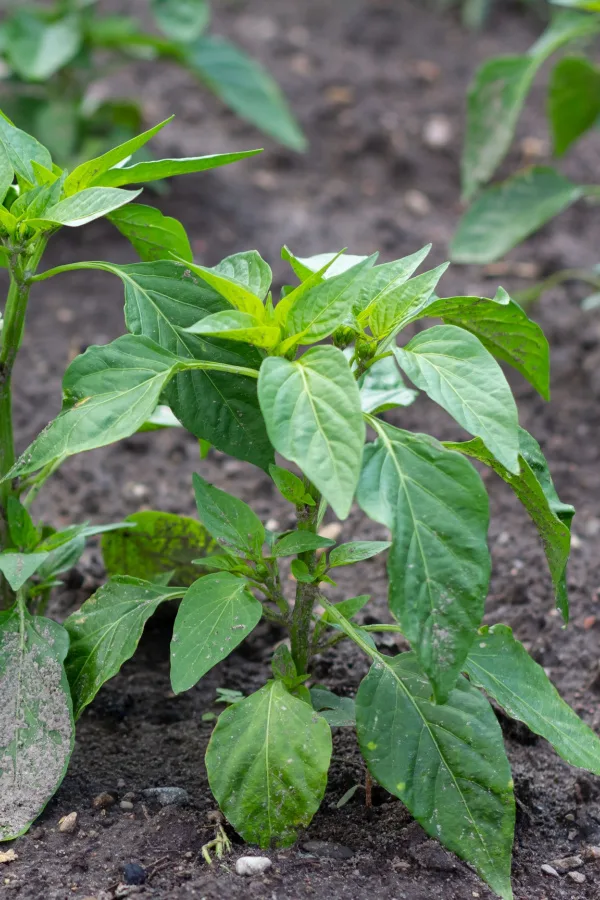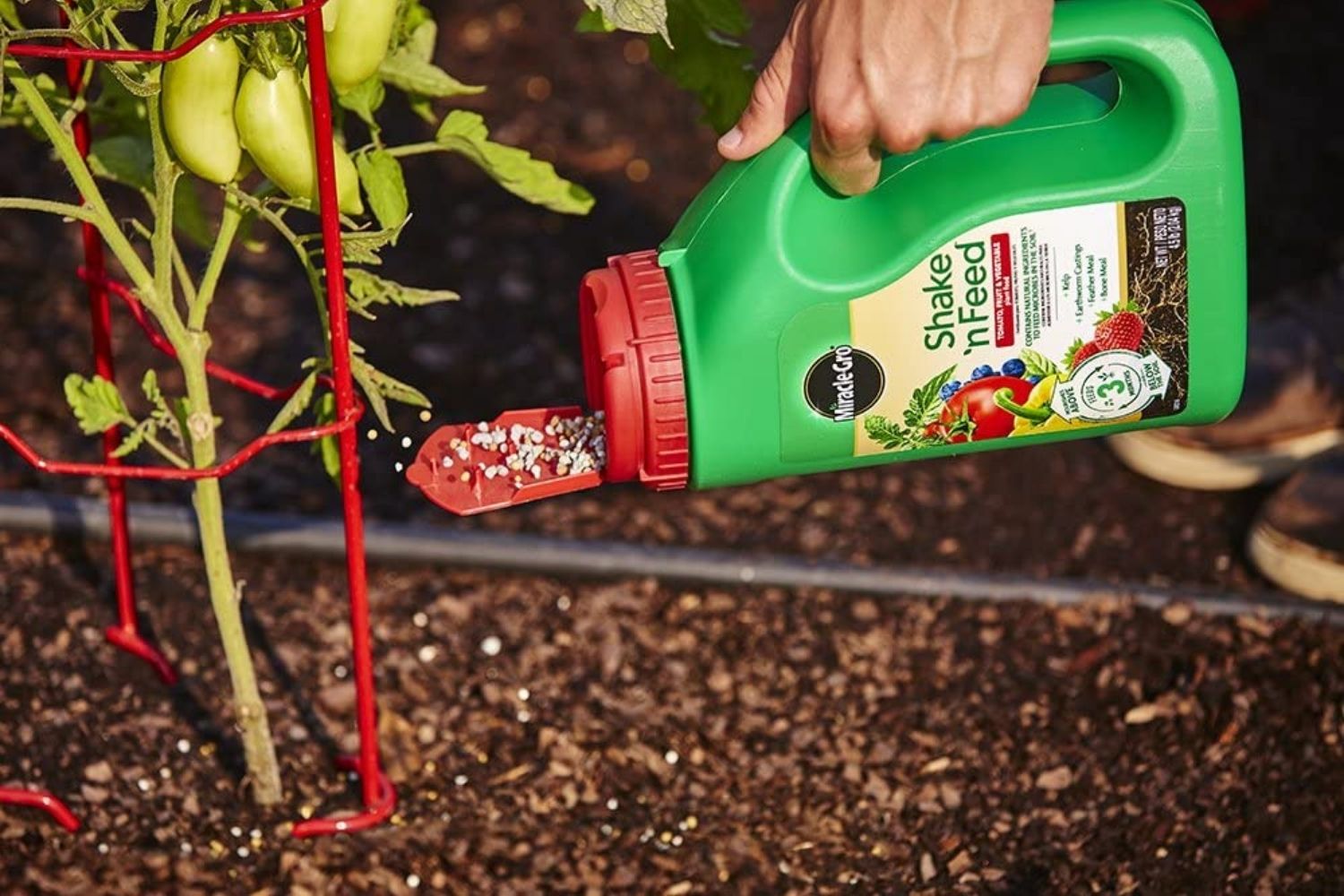Discover the Best Fertilizers for Peppers: Vital Nutrients for Growing Plants
Discover the Best Fertilizers for Peppers: Vital Nutrients for Growing Plants
Blog Article
Organic Vs. Synthetic Fertilizers: Which Is Best for Nurturing Healthy And Balanced Pepper Plants?
In the world of nurturing healthy pepper plants, the choice in between synthetic and organic plant foods stands as a crucial choice with significant implications. While both alternatives goal to supply vital nutrients to support plant growth, the subtleties of their influence on the soil, plant health, and the setting stimulate a debate that mirrors throughout the gardening area. Comprehending the distinct advantages and possible mistakes of each plant food kind is critical for pepper growers looking for to optimize their returns while maintaining a sustainable and eco-conscious technique.
Benefits of Organic Plant Foods
Organic fertilizers use a lasting and environmentally-friendly method to nourishing pepper plants, supplying essential nutrients without the usage of artificial chemicals. These natural plant foods are acquired from natural sources such as garden compost, manure, bone dish, and seaweed, advertising soil wellness and biodiversity. Unlike synthetic fertilizers, organic options launch nutrients slowly, making sure a constant and balanced supply for pepper plants to prosper.
One significant advantage of natural fertilizers is their capability to boost soil structure and water retention. By improving dirt health, natural fertilizers promote beneficial microbial activity, which helps in nutrient uptake by pepper plants. In addition, organic fertilizers minimize the threat of chemical run-off, protecting water sources from air pollution and securing the atmosphere.
Moreover, natural plant foods contribute to long-lasting soil fertility by advertising the development of advantageous dirt microorganisms. These microorganisms help break down raw material, releasing nutrients in a type that is quickly obtainable to pepper plants. best fertilizers for peppers. By cultivating a healthy and balanced dirt ecological community, natural plant foods sustain lasting pepper farming practices that profit both plants and the environment
Drawbacks of Synthetic Fertilizers
Synthetic plant foods, in contrast to their organic equivalents, present different downsides when utilized to nourish pepper plants, influencing both plant health and wellness and environmental sustainability. One significant disadvantage of synthetic plant foods is their tendency to seep nutrients from the soil rapidly.
Furthermore, the overuse of artificial plant foods can add to water air pollution. Excess fertilizers not soaked up by plants can get rid of right into water bodies, causing eutrophication, where algae blooms diminish oxygen degrees in the water, hurting marine life. Moreover, synthetic plant foods are usually stemmed from non-renewable sources, such as nonrenewable fuel sources, adding to carbon emissions and ecological degradation during their manufacturing.
Nutrient Absorption Comparison
When comparing organic and artificial fertilizers in terms of nutrient absorption, organic fertilizers have the advantage of supplying a much more well balanced and slow-release resource of nutrients. Organic plant foods have a selection of macro and micronutrients that are not just valuable for the plants yet additionally advertise healthy and balanced dirt microbial task, which assists in nutrient uptake.
In addition, natural plant foods boost dirt framework and water retention capability, enabling pepper plants to gain access to nutrients a lot more effectively. This enhanced dirt high quality assists in root advancement, allowing far better nutrient absorption. Artificial fertilizers, although at first increasing plant growth due to their high nutrient focus, might impede long-lasting nutrient absorption by degrading dirt wellness with time.
Ecological Effect Considerations

On the other hand, artificial plant foods, although frequently even more concentrated and instantly readily available to plants, can have harmful impacts on the environment otherwise used appropriately (best fertilizers for peppers). Their production needs high power inputs, causing greenhouse gas emissions and adding to environment change. The drainage of excess synthetic fertilizers can infect water sources, leading to eutrophication and hurting marine environments.
Ideal Fertilizer Practices for Peppers
To attain this, it is crucial to adhere to finest fertilizer practices tailored to the specific demands of pepper plants. One crucial technique is to execute a dirt test before applying any kind of plant foods.
One more crucial method is to fertilize pepper plants at the correct time. Typically, peppers gain from obtaining plant food at planting and after that once more when they begin to flower. Over-fertilizing can lead to vitamins and mineral discrepancies and hurt the plants, so it is crucial to comply with recommended application prices.
Additionally, picking a balanced fertilizer with an NPK ratio that matches pepper plants' demands is basic. Ultimately, combining try this website synthetic and natural plant foods carefully can aid nurture healthy and balanced pepper plants while minimizing ecological influence.
Conclusion

Organic plant foods offer an environmentally-friendly and lasting approach to nourishing pepper plants, supplying essential nutrients without the use of synthetic chemicals. best site Unlike artificial plant foods, natural alternatives release nutrients slowly, guaranteeing a constant and well balanced supply for pepper plants to prosper.
Artificial plant foods, in comparison to their organic counterparts, position different downsides when made use of to nourish pepper plants, affecting both plant wellness and ecological sustainability. When contrasting natural and artificial plant foods in terms of nutrient absorption, natural plant foods have the benefit of providing a more balanced and slow-release source of nutrients.Furthermore, organic fertilizers improve soil structure and water retention capability, enabling pepper plants to gain access to nutrients much more effectively.
Report this page